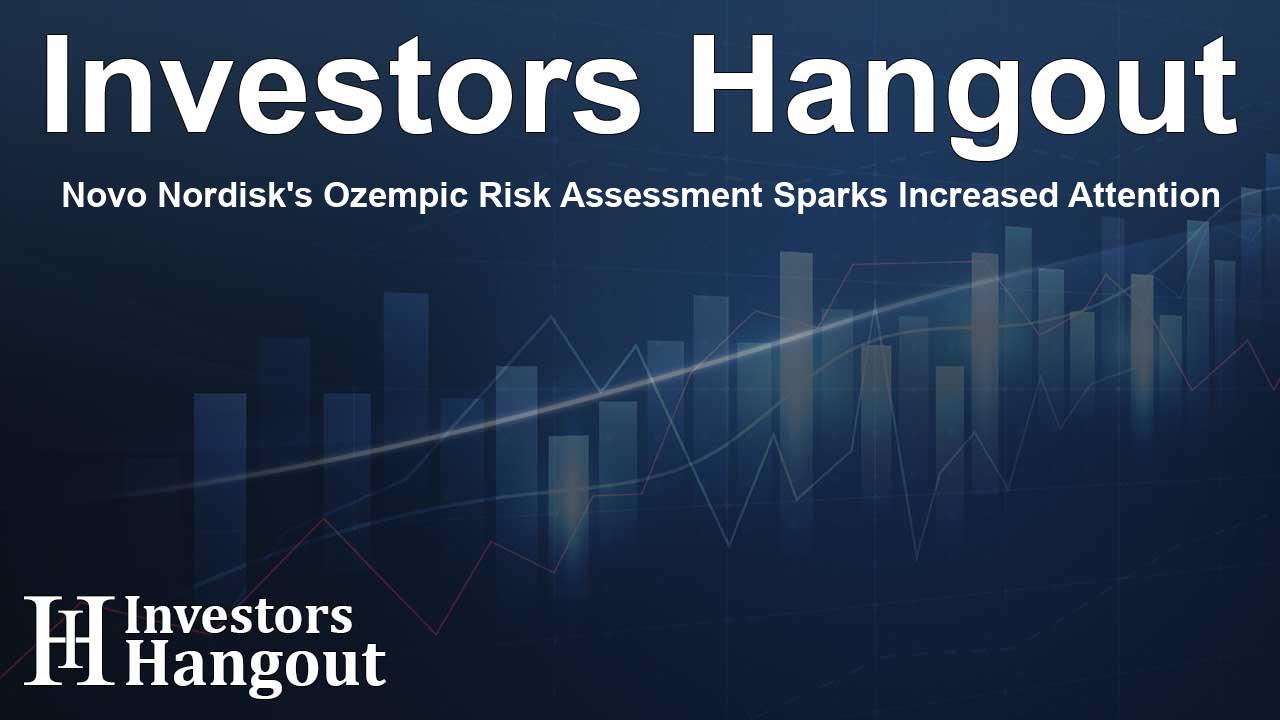Novo Nordisk's Ozempic Risk Assessment Sparks Increased Attention

Analyzing the Increasing Attention on Ozempic
Recent studies have sparked significant interest surrounding Ozempic, a diabetes drug produced by Novo Nordisk A/S (NYSE: NVO). Conducted by the University of Southern Denmark, these studies raise concerns about a potential connection between the medication and a rare eye condition. This newfound focus demands careful consideration of the implications for those treating type 2 diabetes.
Understanding the Study Findings
Results from comprehensive research in Denmark and Norway have unveiled a possible association between semaglutide, the active ingredient in Ozempic, and non-arteritic anterior ischemic optic neuropathy (NAION). These studies incorporated a large sample of diabetic patients, revealing critical insights.
The Scope of Research
One major study analyzed data from over 424,000 diabetic individuals, including more than 106,000 who specifically utilized Ozempic for their treatment. A complementary investigation, performed in collaboration with the Norwegian Institute of Public Health, involved analyzing records from both Danish and Norwegian Ozempic users during the four-year period between 2018 and 2024. The collective data from these studies demonstrate a concerning upward trend in NAION incidents post-Ozempic's introduction.
The Rise of NAION Cases
It was determined that annual NAION occurrences in Denmark escalated from between 60 to 70 prior to 2018 to an estimated 150 cases reported annually after Ozempic became available. Analysis suggests that there is a doubled risk linked with the use of this medication, although the Danish Medicines Agency has noted that NAION remains a rare condition.
Close Monitoring of Adverse Reactions
To ensure patient safety, the Danish Medicines Agency has taken proactive steps, closely monitoring reports of NAION associated with semaglutide. Since mid-year, the agency has recorded 19 cases of NAION that may be connected to Ozempic, contributing to the European side effects database. This scrutiny reflects the organization’s commitment to evaluating and addressing any safety concerns that may arise.
Importance of Continuous Evaluation
While earlier data lacked definitive proof of a link, the recent findings have intensified the investigation into the risks posed by Ozempic. Line Michan, director at the Danish Medicines Agency, acknowledged the rarity of NAION and emphasized the necessity of discernment in interpreting these results. Noting that other health-related factors may play a role, the review by the European Pharmacovigilance Risk Assessment Committee (PRAC) will be essential in determining if further regulatory or safety warnings are necessary.
Current Stock Performance
In the wake of these developments, shares of Novo Nordisk have exhibited slight movement, registering an increase of 0.74% to settle at $108.81 during the latest close. Investor sentiment remains attentive amidst the evolving narrative surrounding Ozempic.
Frequently Asked Questions
What is Ozempic and how does it work?
Ozempic is a medication used to treat type 2 diabetes by helping to regulate blood sugar levels in patients. Its active ingredient, semaglutide, mimics the action of a hormone that helps control blood sugar.
What is NAION?
Non-arteritic anterior ischemic optic neuropathy (NAION) is a rare eye condition that affects the optic nerve, potentially leading to vision loss. Its causes can vary, and it is considered a medical emergency requiring prompt attention.
Should patients taking Ozempic be concerned?
While the studies indicate a potential increased risk of NAION, the condition is rare. Patients should consult their healthcare provider for personalized advice and to discuss any concerns about their medication.
What steps is Novo Nordisk taking regarding these findings?
Novo Nordisk is closely monitoring the situation and collaborating with health authorities, including the Danish Medicines Agency and PRAC, to ensure the safety and well-being of patients using Ozempic.
How can I report side effects related to Ozempic?
Patients are encouraged to report any side effects they experience while using Ozempic to their healthcare provider or directly to the relevant health authority's adverse event reporting system in their country.
About Investors Hangout
Investors Hangout is a leading online stock forum for financial discussion and learning, offering a wide range of free tools and resources. It draws in traders of all levels, who exchange market knowledge, investigate trading tactics, and keep an eye on industry developments in real time. Featuring financial articles, stock message boards, quotes, charts, company profiles, and live news updates. Through cooperative learning and a wealth of informational resources, it helps users from novices creating their first portfolios to experts honing their techniques. Join Investors Hangout today: https://investorshangout.com/
Disclaimer: The content of this article is solely for general informational purposes only; it does not represent legal, financial, or investment advice. Investors Hangout does not offer financial advice; the author is not a licensed financial advisor. Consult a qualified advisor before making any financial or investment decisions based on this article. The author's interpretation of publicly available data shapes the opinions presented here; as a result, they should not be taken as advice to purchase, sell, or hold any securities mentioned or any other investments. The author does not guarantee the accuracy, completeness, or timeliness of any material, providing it "as is." Information and market conditions may change; past performance is not indicative of future outcomes. If any of the material offered here is inaccurate, please contact us for corrections.